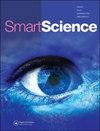Discrete-time state delayed systems with saturation arithmetic: overflow oscillation-free realization
IF 1.4
Q2 MULTIDISCIPLINARY SCIENCES
引用次数: 0
Abstract
ABSTRACTIn many smart systems, such as cloud computing, networked control, manufacturing, and telecommunication, the effects of time delays are unavoidable. Saturation nonlinearity is common in many smart systems (e.g. electric systems with limited actuator power supplies, mechanical systems with position and speed constraints, fixed-point digital filters, etc.). Therefore, the study of stability of discrete-time systems (DTSs) with time delay and saturation is of high importance in practice. The global asymptotic stability (GAS) problem of such systems is investigated in this paper. The saturation nonlinearity is constrained by a convex hull with a free matrix whose infinity norm is smaller than or equal to unity. A new Lyapunov-based GAS criterion for DTSs with time-varying delay and state saturation is established. The GAS problem for DTSs with constant delay and saturation is also discussed. The obtained results can be used to ensure the absence of overflow oscillations in the considered system. In comparison to several existing criteria, the approach yields improved stability results. An example is provided to demonstrate the importance of the presented results.KEYWORDS: Asymptotic stabilitydelayed systemdiscrete-time systemstate saturation AcknowledgmentsThe authors would like to thank the Editor-in-Chief and anonymous reviewers for their constructive comments on the manuscript.Disclosure statementNo potential conflict of interest was reported by the author(s).具有饱和算法的离散时间状态延迟系统:无溢出振荡的实现
在许多智能系统中,如云计算、网络化控制、制造和电信,时间延迟的影响是不可避免的。饱和非线性在许多智能系统中很常见(例如,具有有限执行器电源的电气系统,具有位置和速度约束的机械系统,定点数字滤波器等)。因此,研究具有时滞和饱和的离散时间系统的稳定性在实际应用中具有重要意义。研究了这类系统的全局渐近稳定性问题。饱和非线性由一个自由矩阵的凸包约束,其无穷范数小于等于1。针对具有时变延迟和状态饱和的dts,建立了一种新的lyapunov - GAS判据。讨论了具有恒延迟和恒饱和的dts的GAS问题。所得结果可用于保证所考虑的系统不存在溢出振荡。与现有的几个标准相比,该方法产生了更好的稳定性结果。最后给出了一个例子来说明所提结果的重要性。作者要感谢主编和匿名审稿人对本文的建设性意见。披露声明作者未报告潜在的利益冲突。
本文章由计算机程序翻译,如有差异,请以英文原文为准。
求助全文
约1分钟内获得全文
求助全文
来源期刊

Smart Science
Engineering-Engineering (all)
CiteScore
4.70
自引率
4.30%
发文量
21
期刊介绍:
Smart Science (ISSN 2308-0477) is an international, peer-reviewed journal that publishes significant original scientific researches, and reviews and analyses of current research and science policy. We welcome submissions of high quality papers from all fields of science and from any source. Articles of an interdisciplinary nature are particularly welcomed. Smart Science aims to be among the top multidisciplinary journals covering a broad spectrum of smart topics in the fields of materials science, chemistry, physics, engineering, medicine, and biology. Smart Science is currently focusing on the topics of Smart Manufacturing (CPS, IoT and AI) for Industry 4.0, Smart Energy and Smart Chemistry and Materials. Other specific research areas covered by the journal include, but are not limited to: 1. Smart Science in the Future 2. Smart Manufacturing: -Cyber-Physical System (CPS) -Internet of Things (IoT) and Internet of Brain (IoB) -Artificial Intelligence -Smart Computing -Smart Design/Machine -Smart Sensing -Smart Information and Networks 3. Smart Energy and Thermal/Fluidic Science 4. Smart Chemistry and Materials
 求助内容:
求助内容: 应助结果提醒方式:
应助结果提醒方式:


